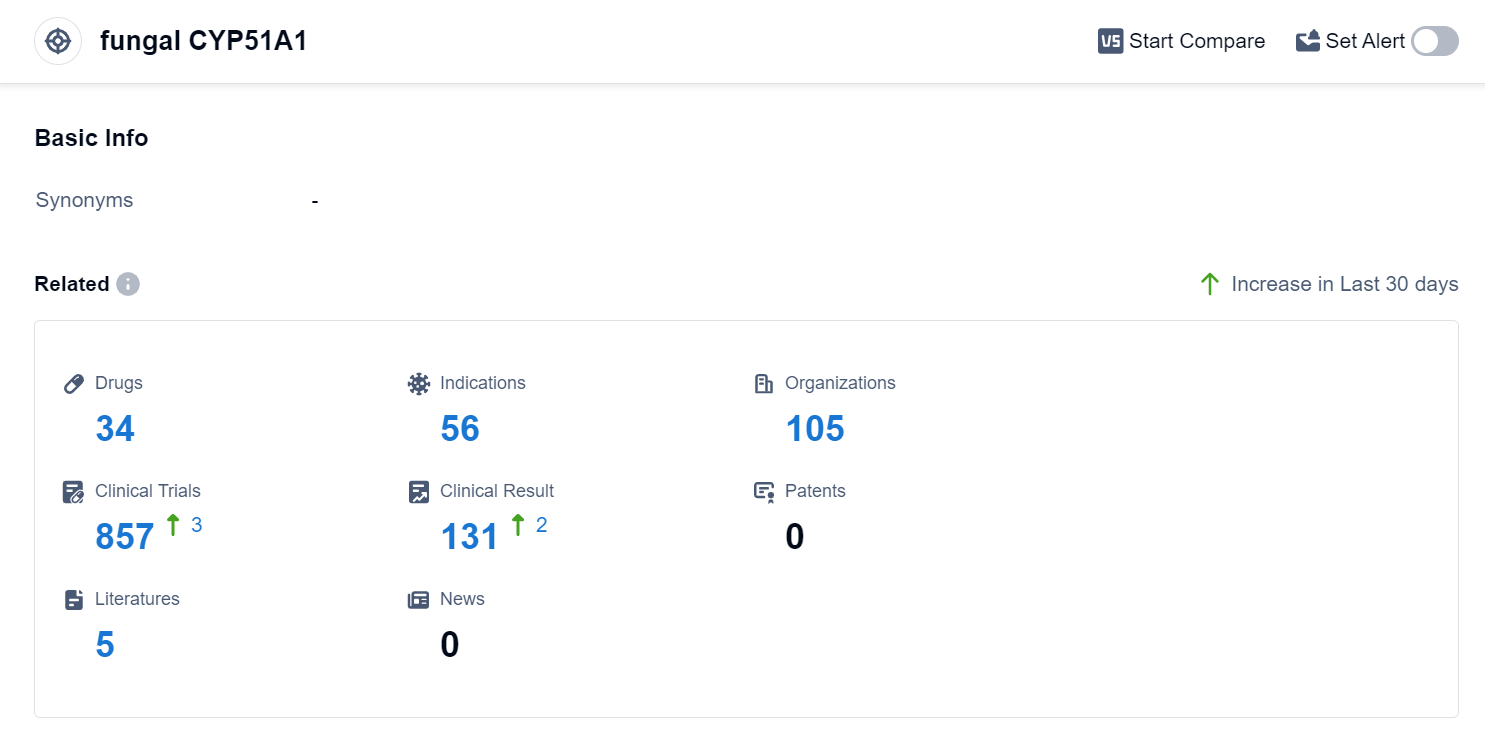Bifonazole: Detailed Review of its Transformative R&D Success, Mechanism of Action, and Drug Target
Bifonazole's R&D Progress
Bifonazole is a small molecule drug that falls under the therapeutic areas of Infectious Diseases and Skin and Musculoskeletal Diseases in the field of biomedicine. It specifically targets fungal CYP51A1, making it effective against various fungal infections. The drug has been approved for use in multiple indications, including Candidiasis, Tinea, Tinea Pedis, Tinea Versicolor, and Mycoses.
Bifonazole received its first approval in Japan in May 2009, making it available for use in that country. It has also obtained approval in other regions globally. The drug has successfully completed the highest phase of clinical trials.
Candidiasis is a common fungal infection caused by Candida species, affecting various parts of the body, including the mouth, throat, and genital area. Tinea refers to a group of fungal infections that affect the skin, hair, and nails. Tinea Pedis, commonly known as athlete's foot, affects the feet, while Tinea Versicolor causes discolored patches on the skin. Mycoses refer to fungal infections in general.
As a small molecule drug, Bifonazole is likely to have a well-defined chemical structure, allowing for easy synthesis and formulation. This characteristic makes it suitable for oral or topical administration, depending on the specific indication and patient requirements.
The approval of Bifonazole in global market highlights its potential as an effective treatment option for fungal infections. The drug's approval in Japan in 2009 suggests that it has been available for use for over a decade, indicating a considerable amount of clinical experience and safety data.
👇Please click on the image below to directly access the latest data (R&D Status | Core Patent | Clinical Trial | Approval status in Global countries) of this drug.
Mechanism of Action for Bifonazole: fungal CYP51A1 inhibitors
From a biomedical perspective, fungal CYP51A1 inhibitors are a type of drugs that specifically target and inhibit the activity of the fungal enzyme called CYP51A1. CYP51A1 is an important enzyme involved in the synthesis of ergosterol, which is a crucial component of the fungal cell membrane. By inhibiting CYP51A1, these inhibitors disrupt the production of ergosterol, leading to impaired fungal cell membrane integrity and ultimately fungal cell death. This class of inhibitors is commonly used in the treatment of fungal infections, as they selectively target fungal cells while having minimal impact on human cells.
Drug Target R&D Trends for Bifonazole
According to Pasnap Synapse, as of 4 Sep 2023, there are a total of 34 fungal CYP51A1 drugs worldwide, from 105 organizations, covering 56 indications, and conducting 857 clinical trials.
Based on the analysis of the provided data, the current competitive landscape for the target fungal CYP51A1 is characterized by multiple companies with drugs in various stages of development. Bausch Health Cos., Inc. has the highest number of drugs in the approved phase, indicating its strong presence in the market. The most common indications for drugs under this target are Mycoses, Tinea Pedis, and Candidiasis. Small molecule drugs are progressing rapidly, with a significant number of drugs in the approved phase. China, the United States, Japan, and the European Union are the countries/locations with the highest development under this target, with China showing significant progress in terms of approved drugs.
Overall, the target fungal CYP51A1 presents a competitive landscape with multiple companies and drug types, indicating a strong focus on research and development in the pharmaceutical industry. The future development of this target will likely continue to see advancements in drug approvals and competition among companies.
👇Please click on the picture link below for free registration or log in directly if you have a freemium account, you can browse the latest research progress on drugs, indications, organizations, clinical trials, clinical results, and drug patents related to this target
Conclusion
In conclusion, Bifonazole is a small molecule drug that targets fungal CYP51A1 and is approved for the treatment of various fungal infections, including Candidiasis, Tinea, Tinea Pedis, Tinea Versicolor, and Mycoses. As an expert in the pharmaceutical industry, it is crucial to consider Bifonazole as a potential treatment option for patients suffering from these specific fungal infections.






